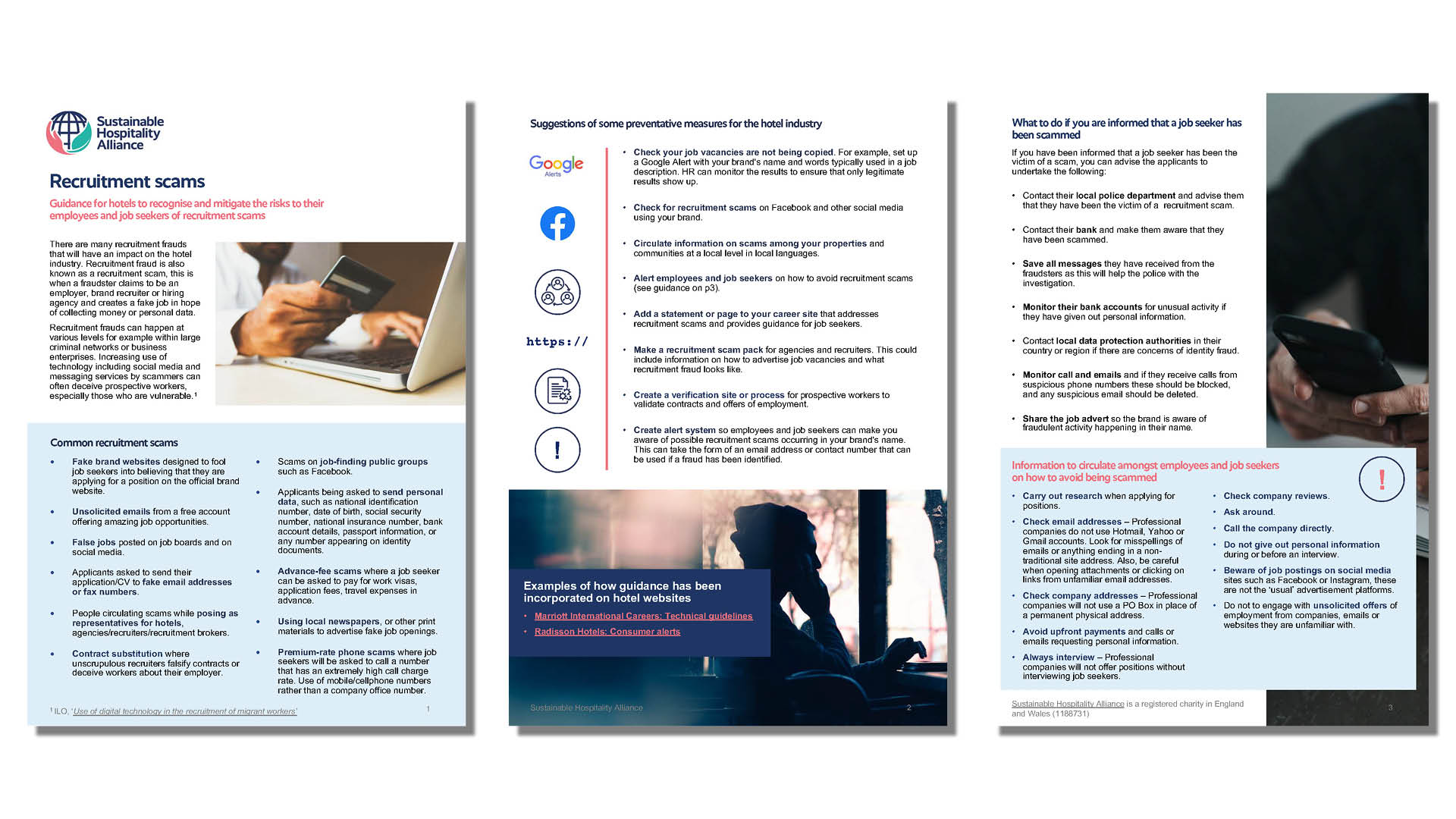Fraudsters can create false job adverts and disguise themselves as your brand to scam prospective employees. Find out what you can do to tackle this.
The hospitality industry, like so many other industries, has seen an increase in recruitment scams post pandemic. As global travel restrictions ease and hiring processes resume, the need to fill vacancies results in increased recruitment activities. This fraud can be of particular concern when there is mass-recruitment needed ahead of big events or when a new hotel opens.
Whilst a surge in employment opportunities can be exciting and positive news for job seekers, they should be aware that the increase in job vacancies can see an increase in fraudulent activity. Migrant workers (workers moving to another country for work purposes) can be a particularly vulnerable target of these scams.
What is a recruitment scam?
A recruitment scam involves a fraudster claiming to be an employer, brand recruiter or hiring agency and creating a fake job in the hope of collecting money or personal data. Scams can combine many elements – from fake websites and contracts, to false contact details and unsolicited emails. Victims of this form of fraud can find that they have paid significant sums of money for the promise of a job which then fails to materialise. They may also have their personal data stolen and used for other fraudulent purposes.
What can employers/hotels do to prevent recruitment scams?
- Check your job vacancies are not being copied. For example, set up a Google Alert with your brand’s name and words typically used in a job description. HR can monitor the results to ensure that only legitimate results show up.
- Make a recruitment scam pack for agencies and recruiters. This could include information on how to advertise job vacancies and what recruitment fraud looks like.
- Create a verification site or process for prospective workers to validate contracts and offers of employment.
- Circulate information on how to recognise and avoid recruitment scams among your properties and local communities. Also share this guidance on your website and social media.
- Have processes in place for reporting recruitment scams. This could include setting up an alert system for job seekers, as well as outlining HR guidelines on how to report fake job adverts and handle other elements, such as fake websites or contact details.
What can job seekers do to recognise a scam?
- Check email addresses – Professional companies do not use Hotmail, Yahoo or Gmail accounts. Look for misspellings of emails or anything ending in a non-traditional site address. Also be careful when opening attachments or clicking on links from unfamiliar email addresses.
- Check company addresses – Professional companies will not use a PO Box in place of a permanent physical address.
- Make no upfront payments and avoid calls or emails requesting personal information.
- Always interview – Professional companies will not offer positions without interviewing job seekers.
- Do not give out personal information during or before an interview.
- Beware of job postings on social media sites such as Facebook or Instagram, these are not the ‘usual’ advertisement platforms.
Next Steps
To find out more about what your hotel can do to tackle this exploitation, take a look at our new Recruitment Scams factsheet.



